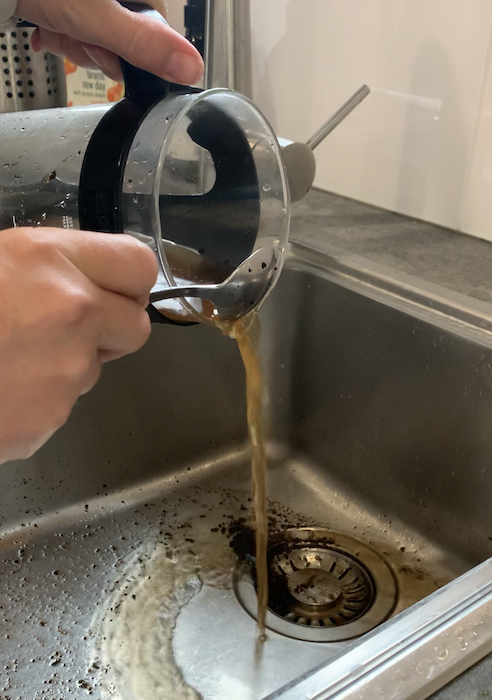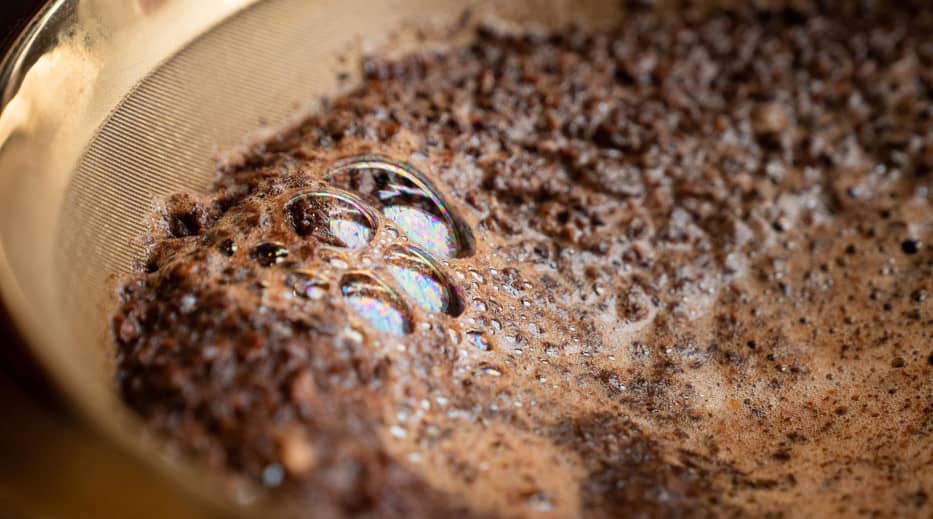On this page in the next paragraph yow will discover a lot of dependable insights on the subject of Can Coffee Grounds Go Down the Drain or Sink?.

If you're a serious coffee enthusiast, you could be wondering about the most effective way to throw away your coffee premises. While it might appear hassle-free to wash them down the sink, this practice can result in numerous problems for both your plumbing and the setting. In this post, we'll check out whether it's secure to place coffee grounds down the sink and go over alternative disposal techniques to think about.
Threats of Putting Coffee Grounds Down the Sink
Plumbing Issues
One of the main interest in disposing of coffee grounds down the sink is the risk of clogging your pipelines. Coffee premises do not liquify in water and can build up in time, creating a thick sludge that can block drains pipes and result in costly plumbing repair services.
Environmental Impact
Beyond the potential damages to your plumbing, putting coffee premises down the sink can likewise harm the atmosphere. When cleaned into the sewage system, coffee grounds can contribute to clogs in drain lines and therapy centers. Furthermore, the high focus of raw material in coffee premises can diminish oxygen degrees in waterways, negatively impacting water life.
Alternatives to Disposing of Coffee Grounds
Composting
One environmentally friendly choice for dealing with coffee premises is to compost them. Coffee premises are abundant in nitrogen, making them an exceptional addition to compost heap or containers. As they decay, they include nutrients to the dirt, enhancing its fertility and texture.
Garbage Disposal
If you do not have a composting configuration, one more choice is to just toss your coffee premises in the trash. Make sure to seal them in a compostable bag or container to avoid odors and leak. While this method does not supply the very same ecological advantages as composting, it's a secure and practical way to deal with coffee grounds.
Tips for Proper Disposal
Utilize a Sink Strainer
To stop coffee premises from entering your sink's drainpipe in the first place, consider making use of a sink filter. These low-cost gadgets trap strong bits, consisting of coffee grounds, stopping them from creating clogs.
Regular Maintenance
Regardless of exactly how you select to take care of your coffee premises, it's necessary to preserve your plumbing regularly. Set up periodic drainpipe cleanings to remove any type of build-up and guarantee that your pipes remain clear and free-flowing.
Final thought
While it may be appealing to wash coffee grounds down the sink for comfort, doing so can have major consequences for your plumbing and the atmosphere. Instead, take into consideration composting your coffee premises or throwing away them in the garbage. By taking on responsible disposal practices, you can enjoy your coffee guilt-free while decreasing your environmental footprint.
Can Coffee Grounds Clog Your Drains?
It is not surprising that individuals are seeking ways to be more environmentally friendly and sustainable, given the standard of cleaning in use today. You may find information on the benefits of coffee grounds in most articles. After all, we enjoy coffee so much that we may also use the coffee grounds. Coffee grounds are environmentally friendly and can undoubtedly improve our cleaning methods, whether they are used as fertilizer or an air purifier. But there is still one question: Can coffee grounds clog your drains?
Discover the pros and cons of disposing of coffee grounds in the sink in this article and whether it’s a wise decision. Consider all the alternatives, including the possibility of a clogged drain. We will therefore assist you in weighing your options if you have coffee grounds lying around in your cupboard.
Do coffee grounds clog drains?
To put it simply, coffee grounds can clog drains. Contrary to popular opinion, coffee grounds are less helpful than harmful when cleaning your home’s drains. Therefore, even while coffee grounds may seem simple to flush down the toilet, they could also get caught quickly and require extensive cleaning or unclogging. In actuality, one of the most obvious causes of clogged drains is coffee grounds. They cause drain clogs in a similar manner to how fat and cooking oil do. They could accumulate over time and eventually take on a certain texture that clogs your drains.
What are other uses there for coffee grounds?
What are we going to do with our remaining coffee grounds now that we know that coffee grounds clog drains? You could use it as compost for your plants, I suppose. They can also be used as fertilizer to help your plant grow better. Additionally, they are an excellent technique to remove contaminants from your inner environment. You may also use coffee grounds to increase the blood flow to your skin if you’re a skincare obsessive. Additionally, you may use them as an excellent natural cleaning scrub instead of spending money on body scrubs.
Your unused coffee grinds could be used in a variety of ways. Given that we also want to create an atmosphere that is much more sustainable, we do not advise you to toss them out. Because of this, even though coffee grounds and sink drains don’t mix, now is the ideal moment for you to explore alternative uses for your coffee grounds.What to do if coffee grounds are clogging your sink drain
What are you going to do if your sink drain is clogged, for example? First of all, don’t get alarmed. Be sure to inspect the region and then make as much note of the problems as you can. Then, make a professional plumbing team call to assist you. If you live in NYC, be well prepared because the prices of hiring professionals are much higher, our consultants have prepared an article for you about the costs of living in NYC. However, there are circumstances in which expert assistance is not necessary. Therefore, if you believe that the problem at hand is straightforward and your sink drain is stopped, you can try the following steps:
Boiling water can be used to remove a blockage. Check to see if the clogging is related to your garbage disposal. If possible, use a sink plunger to remove the obstruction. To soften the accumulation that causes the blockage, use baking soda and white vinegar. If a blockage continues, manually clean the pipes. When to call a professional plumber
Bad smells, leaks, or many water lines backing up are indications that you need to contact a reputable plumbing service to fix the issue.
While a simple unclogging can be accomplished with a sink plunger, other problems call for professional assistance. It’s essential to consult a professional if, for instance, the accumulation in your sink drains affects how well the drainage system functions. Particularly if the grounds have been collected for more than a year, it is not an easy process. Additionally, bad smells, leaks, or many water lines backing up are indications that you need to contact a reputable plumbing service to fix the issue. When it comes to their domestic plumbing needs, it’s also crucial to work with a business that provides a comprehensive solution.
https://raytheplumber.com/uncategorized/can-coffee-grounds-clog-your-drains/

I'm certainly very enthusiastic about What are the consequences of putting coffee grounds and I really hope you appreciated our piece. Don't hesitate to set aside a second to distribute this blog if you appreciated it. Thanks for your time spent reading it.
Schedule An Appointment